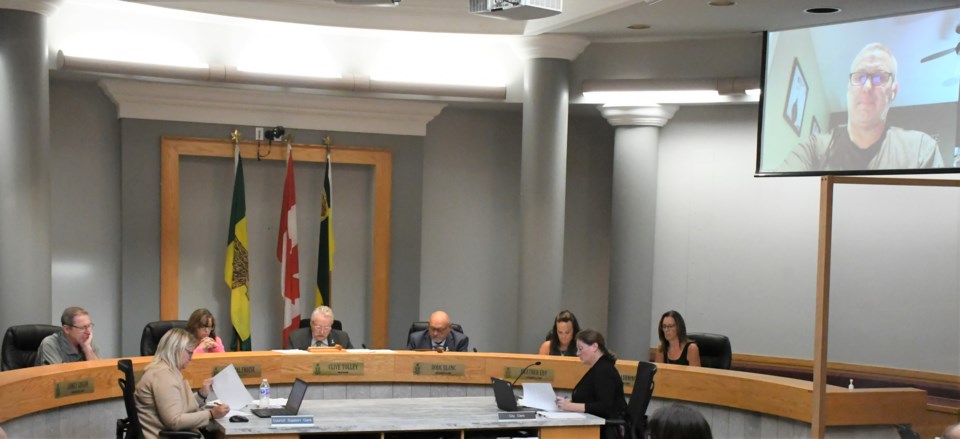City administration expects a shortfall in the fines and penalties revenue category because the province has been slow in providing court-related money and city hall has not yet launched its parking ticket collection program.
Administration expects to collect $1,586,600 in revenue from fines and penalties this year, but as of June 30, had only acquired $378,554 — 24 per cent of budget and behind expected levels for this year.
The provincial government provides Moose Jaw with annual revenues from court fines via the automated speed enforcement (ASE) cameras, finance director Brian Acker explained during the Aug. 28 regular council meeting while discussing the second-quarter financial report.
However, the province has been “very slow” in providing those payments this year, leaving city hall to review that situation and whether there is a substantive reason for the delays.
“But we do expect to receive that revenue as we go on through the year, so we’re not overly concerned in terms of that,” Acker said.
Meanwhile, city hall budgeted $250,000 to collect outstanding parking meter fines, which total roughly $1 million and stretch back to 2011, he continued. However, the city has not collected anything yet because legislative and enforcement services is still developing a collection program; it plans to issue an enforcement-related tender this year.
“They hope to be able to start collecting some of that revenue later in the year. Probably, (it is) unlikely we will collect the full $250,000 this year, so there will be a slight shortfall in that,” Acker added.
Along with benefits, fuel and bylaw expenses, these positions were to cost $430,400 annually, which city administration expected to pay for through the yearly recovery of $400,000 from parking tickets and untidy properties.
Another concern Acker highlighted in the second-quarter financial report was in the public works department. He pointed out that expenses were $2,924,145 at the year’s mid-way point — 61 per cent of the $4,800,661 budget — compared to the same period last year when expenses were $2,658,018.
The areas where expenses were highest were:
- Roadway maintenance and repair, with $403,138 spent out of a $503,573 budget, or 80 per cent
- Snow operations, with $816,722 spent out of a $1,086,908 budget, or 75 per cent
- Gravel roadways, with $151,108 spent out of a $221,695 budget, or 68 per cent
“There has been some misallocation to that particular budget area (roadway maintenance and repair), so we will be correcting that in the future so … it isn’t as over-expended next year at this time,” Acker said.
Furthermore, snow operations could come in over budget this year depending on how much snow falls, but city hall has a reserve of $700,000 if additional snow operations are required.
Meanwhile, the workshop category — comprised of workshop and fleet sub-categories — spent $1,051,616 during the first six months of this year, which was $167,891 more than the $883,725 budget — a 119-per-cent overage.
Separately, the workshop sub-category has spent 60 per cent of its budget while the fleet sub-category is roughly $571,000 over budget, Acker continued. The city charges annual rental fees for major machinery to help offset fuel, maintenance and equipment depreciation.
The city faced a “significant deficit” last year due to a loss of $1.2 million on equipment, while it is on track to face similar financial challenges this year, he pointed out.
“The biggest issues in fleet is we have a very aged fleet. For the last number of years, we haven’t probably done the fleet replacement we should have,” Acker stated. “We’re now seeing that in significantly increased costs, but (we’re) also seeing challenges in terms of significant replacement costs.”
Acker added that city manager Maryse Carmichael has directed departments to restrict discretionary expenses to offset some equipment reserve losses.
The next regular council meeting is Monday, Sept. 11.
In response to some providers blocking access to Canadian news on their platforms, our website, MooseJawToday.com will continue to be your source for hyper-local Moose Jaw news. Bookmark MooseJawToday.com and sign up for our free online newsletter to read the latest local developments.




